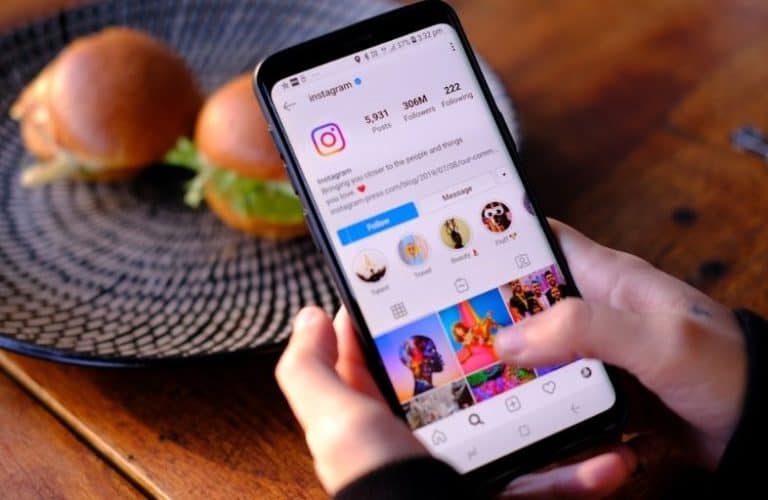Social Media Marketing FAQs

Social media marketing is the use of social media platforms and websites to promote a product or service. There are two distinct branches of social media marketing.
The first branch includes the use of traditional social networks, mainly Facebook and Twitter to spread brand awareness with people who have already purchased or shown interest in a product or service within the past. This form of marketing is effective because it reaches its target audience quickly making them aware of new products and services, and they share their experience with their online community.
The second branch includes the use of platforms such as YouTube, Instagram, Pinterest and Snapchat to spread brand awareness with a target audience not yet familiar with a business or product/service. It can be done by building a following on social media accounts where influencers will share content from your business with their audience. This form of marketing takes time to take off but can be powerful when successful.
Which social media is best for marketing?
According to statistics, the most popular social networks are Twitter, Facebook and Instagram followed by Pinterest, LinkedIn and Snapchat. While it is not necessary to use all forms of social media available, the best way to choose which platforms are best for your business is to use the one that your target audience uses.
What social media marketing means?
Social media marketing refers to the use of social media websites, mobile apps and blogging sites for branding, promotion or advertising a product or service. Social media marketing is the use of social media websites, mobile apps and blogging sites for branding, promotion or advertising.
What are the benefits of social media?
1)Branding Awareness
Social media platforms provide a great opportunity for a company to create awareness among its target audience. The best way to use these social platforms is by engaging your existing customers and encouraging them to spread the word about your brand, whether it’s reposting images or retweeting posts from your business’s Twitter page. This kind of activity is a great way to get more people on board with your brand.
2)Customer Engagement
Social Media platforms provide a great opportunity for you to engage with your target community and better understand their thoughts and opinions about your products or services. It allows you to have conversations with customers who are actively interested in your brand, serving as a powerful feedback tool for both organisations as well as individuals. Communication is key as it allows you to understand what people think about your business, products or services, enabling you to provide a better service.
3)Tapping into the Right Audience
Social media sites help businesses reach out to their target audience easily and effortlessly. It provides the opportunity to get in touch with potential customers who are likely to buy your product or service. By creating accounts on social media platforms, businesses can reach out to their target community with ease.
4)Research
Social Media networks provide you with opportunities to do market research and see what the competition is up to using tools such as Google alerts, so you are always working on the cutting edge of your industry. One important aspect of market research is to find out what are the wants, needs and opinions of your target audience. The more you know about them, the better equipped you are to give them what they want.
5)Generate Revenue
Social Media Marketing is one of the most popular forms of marketing today because it helps businesses generate revenue in many ways. Your business can sell products directly from your Facebook page, take preorders from your Twitter followers or create a fan-base for a product that has yet to be produced.
6)Increased Traffic
Since social media sites have a wide user base, your brand will get at least some level of exposure from being present on a social platform. Businesses can also benefit from their campaigns by using platforms such as Facebook Ads or Twitter Promoted Tweets that allow them to target specific demographics based on information available on the platform. The more visible you are on a particular social media site, the greater your chances of attracting potential customers.
7)Customer Satisfaction
Being able to interact with your customers directly is an important aspect of social media marketing. To provide better service and meet customer needs, being able to have a conversation is key. It gives businesses the chance to resolve issues in real time, rather than through outbound calls or emails. This innovative way of interacting with customers is one of the most important factors for customer satisfaction in today’s market.
8)On-Going Relationship
Social media platforms allow you to build an ongoing relationship with your target audience, so they become familiar with your brand and products. This results in a better understanding of their needs and wants, allowing you to have a deep connection with them which is important for business growth.
9)Cost-effective Benefits
Social media sites can help you save a lot of money and time, especially when utilising them for marketing purposes. It allows you to get in touch with your target community without having to spend anything on traditional marketing tools such as flyers or billboards. As social media is always evolving, it also keeps your brand relevant and up-to-date, allowing you to stay ahead of the curve.
Is social media part of marketing?
Yes, social media is a form of marketing. It is an effective way to become aware of new products and services, engage with customers and promote your brand online.
How does social media affect marketing?
Social media affects all forms of traditional advertising such as television, radio and newspaper. It gives businesses the opportunity to reach new customers at a lower cost than more traditional advertising methods.
How social media is used in advertising?
Digital ads can be targeted based on user demographics, social connections, interests, etc., which allows advertisers to increase their brand awareness. The use of hashtags are used to track the success of an ad campaign through social media. An example of this would be #sponsored or #ad on Instagram or Facebook.
How does social media affect video marketing?
Social media and video marketing work hand in hand, with one promoting the other. Videos allow marketers to engage their audience by using a more personal approach than traditional marketing methods.
What are the negative effects of social media?
1)Data security and privacy concerns
With so much of our personal information available online, social media sites are prime targets for secretive data mining. The more people who use social media sites, the higher the chances of it being hacked and leaked.
2) Negative impact on productivity
Social media can be a time waster if not monitored properly. Many studies have shown that social media websites have a direct impact on time spent online, resulting in more ‘procrastination’. Some of the most popular sites such as Facebook and Twitter have been linked to reduced concentration levels leading to lower productivity
3) Cyber-bullying
Social media sites can be used for cyber-bullying if left unchecked. Bullying behaviours tend to be made worse because the bully can remain anonymous and find support from others who may share similar views.
How is social media used in advertising?
Social media is used to promote or advertise a product or service by building an audience with targeted demographics, interests and behaviors. It gives businesses the opportunity to engage with their target community and promote their brand in a more personal way. As social media is always evolving, it keeps your brand up-to-date and relevant.






